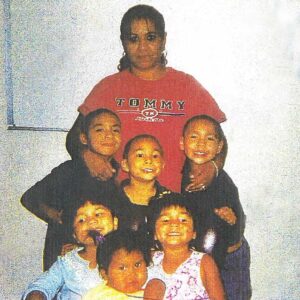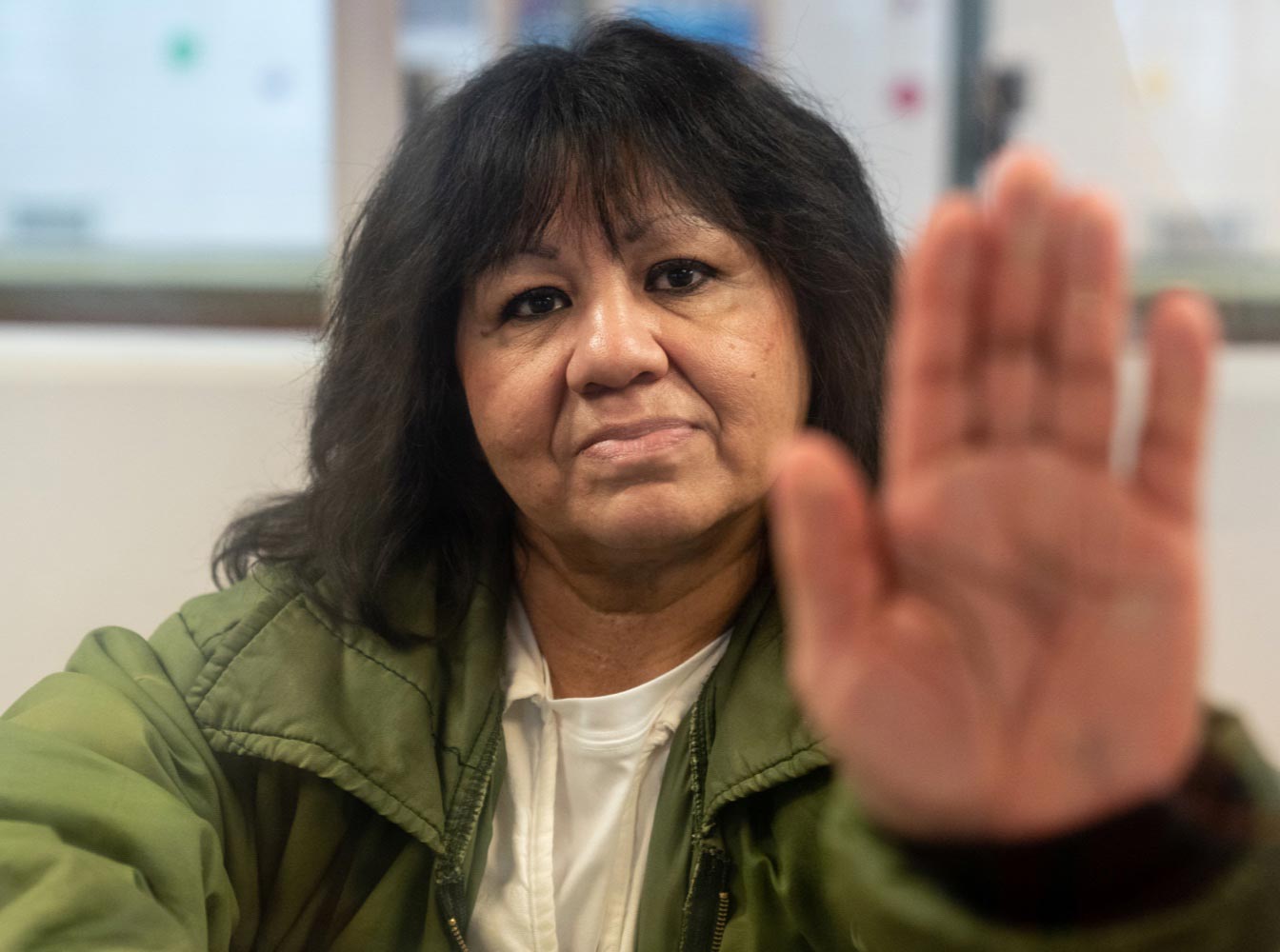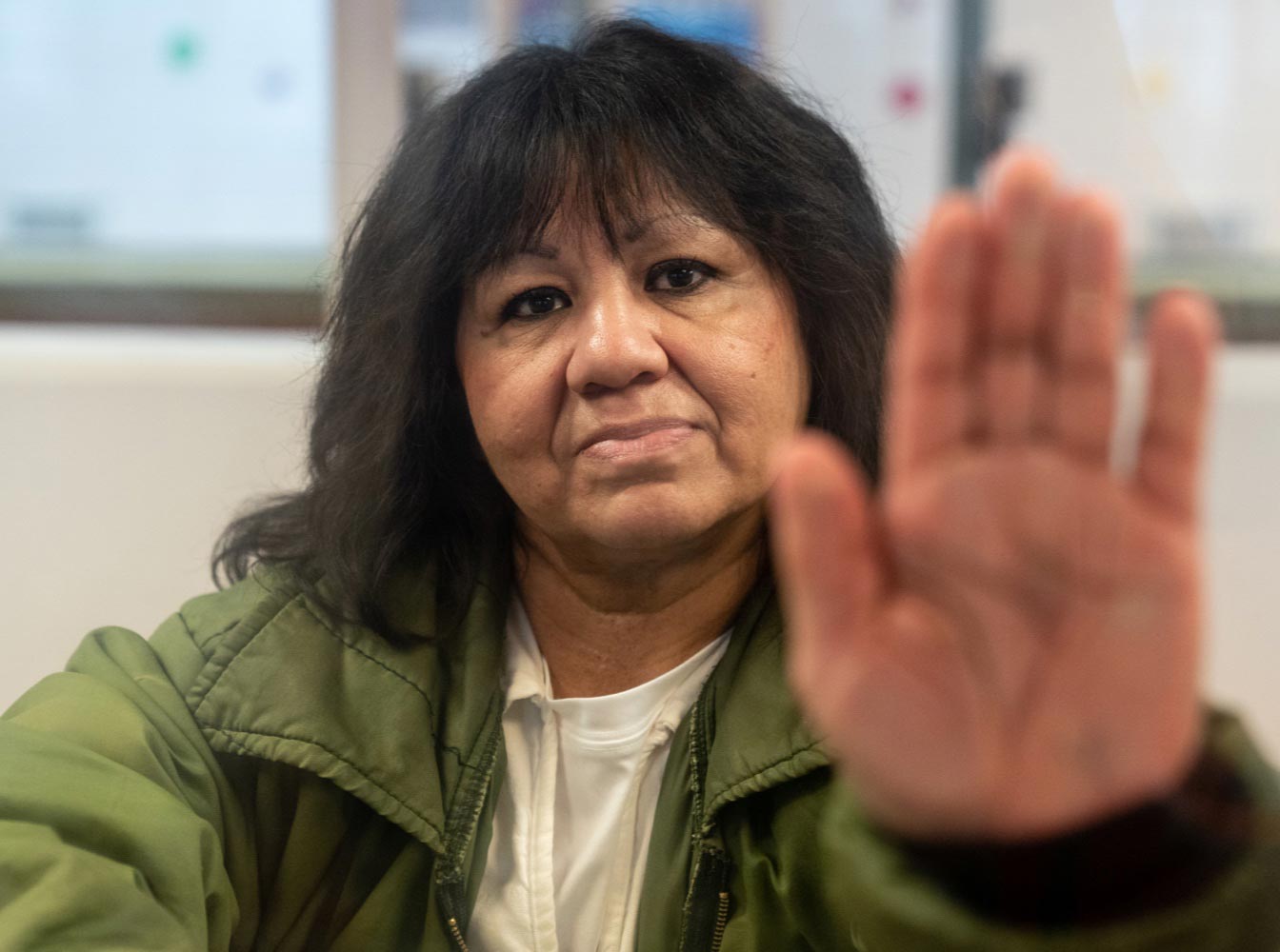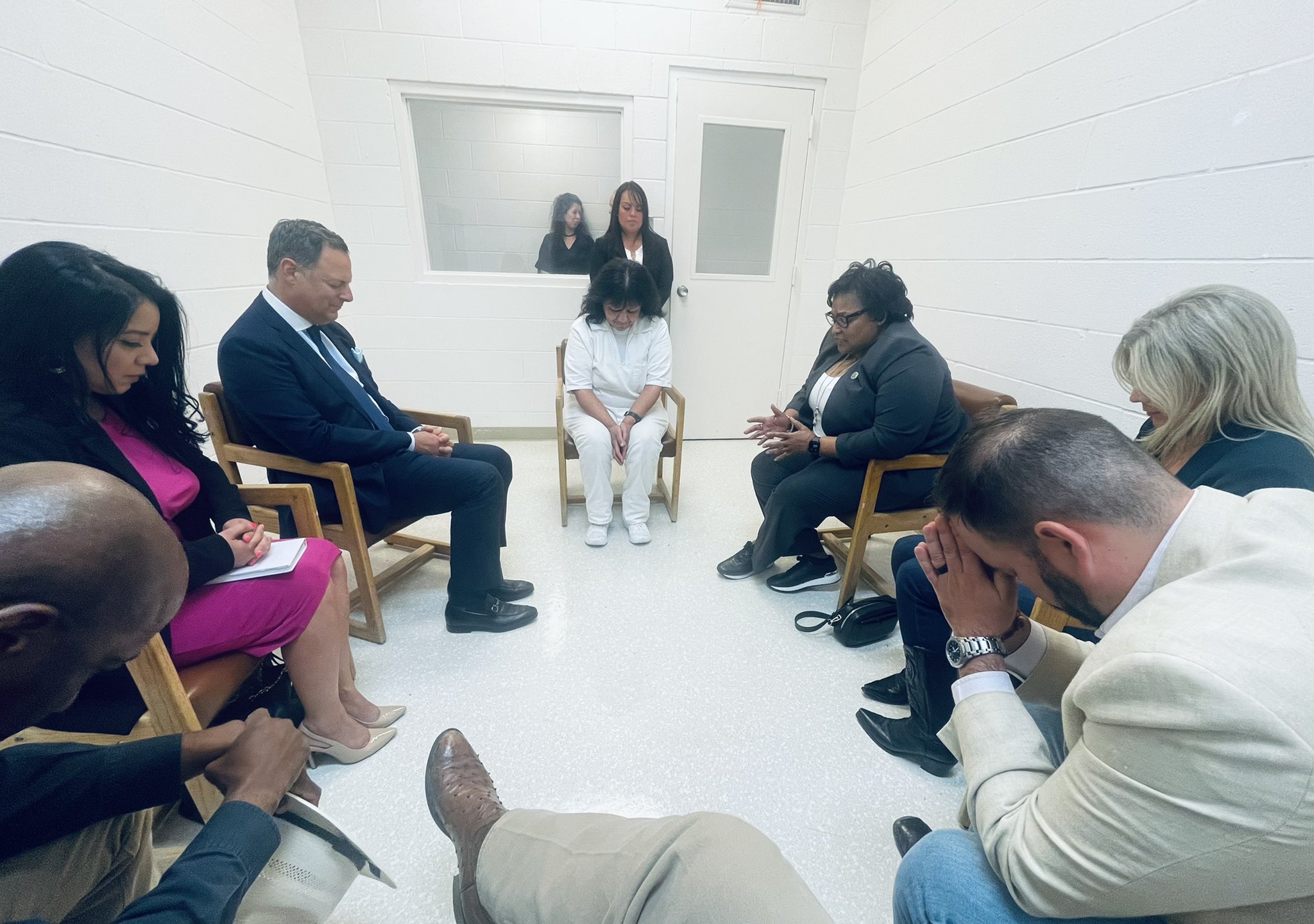Watch powerful video
Melissa Lucio Petitions Texas Court of Criminal Appeals for Stay of Execution and Reversal of Her Conviction and Death Sentence
Attorneys argue newly discovered evidence shows Lucio is innocent.
04.15.22 By Innocence Staff
Latest case update from April 12, 2024: The judge who presided over Melissa Lucio’s original trial, Judge Arturo Nelson recommended that that Texas Court of Criminal Appeals overturn Ms. Lucio’s conviction and death sentence. That recommendation is now before the Court of Criminal Appeals, which in Texas, is the only court that can overturn a criminal conviction.
The article below was written in 2022:
(Austin, Texas) Attorneys for Melissa Lucio today filed a 242-page application for a writ of habeas corpus asking the Texas Court of Criminal Appeals to stay her scheduled April 27, 2022 execution and vacate her conviction and death sentence. The filing represents the first time the courts will have the opportunity to consider the new scientific and expert evidence showing that Melissa’s conviction was based on an unreliable, coerced “confession” and unscientific false evidence that misled the jury. Melissa has been condemned to die for the accidental death of her daughter, Mariah.
“If the jury had heard evidence about the coercive tactics used in Melissa’s interrogation and the medical evidence showing that Mariah’s cause of death was consistent with an accident, they would have found there was no murder, Melissa would have been acquitted, and she would be preparing for Easter mass with her children, not facing execution. She deserves a new trial,” said Vanessa Potkin, Director of Special Litigation at the Innocence Project and one of Melissa’s attorneys.
The petition also details how the police investigation and prosecution were infected by gender bias. “Police targeted Melissa because she did not fit their image of how a grieving mother should behave. They used interrogation tactics that replicated the dynamics of domestic violence, that told her she had no choice but to acquiesce to their insistence that she take responsibility for Mariah’s injuries. New linguistic analysis shows that while the police treated Melissa as a suspect, they treated her partner like an innocent victim—even though he was also Mariah’s caretaker, and had a history of intra-familial violence. He is now a free man,” said Professor Sandra Babcock, Director of the Cornell Center on the Death Penalty Worldwide, and one of Ms. Lucio’s attorneys.
“We know that corruption ran deep in the District Attorney’s Office under Armando Villalobos. We owe it to Mariah and her siblings to make sure a new panel of twelve jurors hears all the evidence of their mother’s innocence,” said Tivon Schardl, Capital Habeas Unit Chief of the Federal Defender for the Western District of Texas and one of Melissa’s attorneys.
Melissa Lucio’s First Subsequent Application for Writ of Habeas Corpus can be viewed here: https://tinyurl.com/2paxuabx
Melissa Lucio case summary
Melissa Lucio, a Mexican-American who is facing execution in Texas on April 27, 2022, was wrongfully convicted and sentenced to death after her daughter, Mariah, sustained injuries from an accidental fall. Although Melissa repeatedly told the police that she did not kill her daughter, they continued to interrogate her for five hours until she agreed, falsely, to take responsibility for some of her daughter’s injuries.
Melissa suffered a lifetime of sexual abuse and domestic violence, which made her especially vulnerable to the police’s coercive interrogation tactics. Melissa had no history of violence, but her husband, Mariah’s father, was found guilty of child endangerment and sentenced to four years, even though he had a history of assaultive behavior.

Melissa and her family. (Image: Courtesy of the Lucio family)
Struck by the sentencing disparity and grave doubts about the reliability of Melissa’s conviction, a bipartisan group of more than 80 members of the Texas House of Representatives and a bipartisan group of 20 members of the Texas Senate oppose Melissa’s execution. Hundreds of Texas anti-domestic violence groups, Baptist, Evangelical and Catholic leaders, Latino organizations, exonerees of wrongful convictions, and Melissa’s children are urging the Texas Board of Pardons and Paroles and Governor Abbott to grant Melissa clemency.
Melissa’s execution would cause further suffering for her children who lost their sister 15 years ago. It would also be the first execution of a Latina in the United States since the resumption of the death penalty in the 1970s.
Clemency application cites new evidence supporting Melissa’s innocence claim
On March 22, 2022, Melissa’s attorneys submitted an application for clemency to the Governor and the Board of Pardons and Paroles which includes the declarations of seven nationally recognized experts, including experts in false confessions and medical and forensic experts, who have reviewed the evidence and concluded that Melissa’s conviction was based upon:
(1) an unreliable “confession” that is essentially a mere “regurgitation” of facts and words officers fed to her during the five hour interrogation, and
(2) unscientific, false evidence that misled the jury into believing that Mariah must have been killed by physical abuse, when the evidence is actually consistent with a conclusion that Mariah died from medical complications after a fall.
The application also documents that Melissa asserted her innocence more than 100 times over five hours of the coercive interrogation.
In addition to the new forensic analyses, the clemency application includes declarations from five jurors stating they have grave concerns about evidence withheld from them at Melissa’s capital trial and would support relief. An additional juror, an alternate who heard the evidence, but did not join deliberations, also submitted a declaration supporting relief for Melissa.
The District Attorney, the courts, the Texas Board of Pardons and Paroles, and the Governor must undertake a meaningful review of Melissa’s case. That review can only happen if the execution date is withdrawn or stayed.
A rush to judgment after a tragedy
On February 15, 2007, as Melissa was moving her family to a new home, Mariah fell down a steep outdoor staircase leading to their apartment. After the fall, Mariah’s injuries did not appear life-threatening, but two days later she fell asleep on her parents’ bed and did not wake up. Mariah had physical disabilities that made her walking unstable and she had a history of falls, including a recent fall at a preschool program where she lost consciousness. At the time of her arrest, Melissa had no history of abusing her children or violence of any kind. (App. at pp. 2, 10-12.)

Melissa asserted her innocence over 100 times during a police interrogation. (Image: Courtesy of the Lucio family)
Two hours after Mariah’s death, Melissa — grieving and in shock — was hauled into an interrogation room where, for over five hours, armed, male police officers stood over her, yelled at her, threatened her, berated her parenting, and repeatedly refused to accept anything less than an admission to causing her daughter’s death. Melissa was especially vulnerable to the aggressive, intimidating, and psychologically manipulative interrogation tactics of the police and male authority figures due to her history of abuse, trauma, low IQ, and abnormally high levels of suggestibility and compliance. (App. at pp. 15-17.)
After hours of continuous interrogation, Melissa acquiesced, followed their directions, and gave in to their demands. She was sleep-deprived — it was early in the morning by then — and pregnant with twins, emotionally and physically exhausted by the threats and manipulation. (App. at pp. 15-17, 39.)
“Police targeted Melissa because she did not fit their image of how a grieving mother should behave.”
Two experts on false confessions (including police trainer and interrogation expert, David Thompson, and Dr. Gisli Gudjonsson, one of the world’s leading experts on false confessions) have analyzed Melissa’s interrogation and concluded that her admissions are “unreliable” and simply a “regurgitation” of the words and facts that interrogators fed to her throughout a highly coercive interrogation process. (App. at pp. 16, 39-42.)
Lacking physical evidence or eyewitnesses connecting Melissa to Mariah’s death, Cameron County District Attorney Armando Villalobos — who is now serving a 13-year federal sentence for bribery and extortion — characterized Melissa’s acquiescence during the interrogation as a “confession” to murder. (App. at p. 19.)
Mariah’s death was declared a murder before the autopsy even began
The application states: “[The State’s Medical Examiner] Dr. Farley, who was told going into autopsy that Melissa had ‘confessed’ to abusing Mariah, and who was accompanied in the autopsy suite by two of the interrogating officers, assumed everything she observed was evidence of abuse and ignored all evidence to the contrary.” (App. at p. 20.)
At Melissa’s trial, the jury was told that Mariah’s injuries could only be explained by child abuse and complications from an accidental fall were impossible. That testimony was false. Dr. Farley failed in her duty to rule out nonviolent medical explanations for Mariah’s condition before rushing to agree with law enforcement’s judgment of abuse. (App. at pp. 19-20, 28.)
Seven experts, including nationally recognized medical and forensic scientists, have now reviewed the evidence in Melissa’s case. Dr. Michael Laposata, the chairman of the Department of Pathology at the University of Texas Medical Branch at Galveston, concluded that at the time of her death Mariah had indications of Disseminated Intravascular Coagulation (DIC), a disorder that causes extensive bruising following a head trauma, like the injury that Mariah suffered from her fall, or an infection. (App. at p. 21.)






God bless this lady and those who fight for injustice.